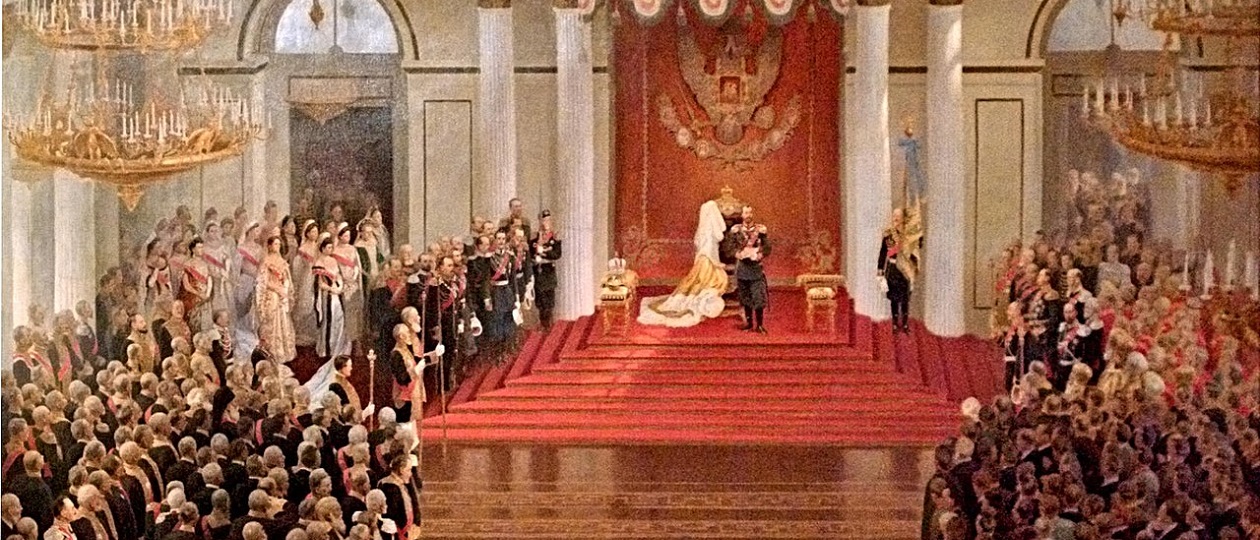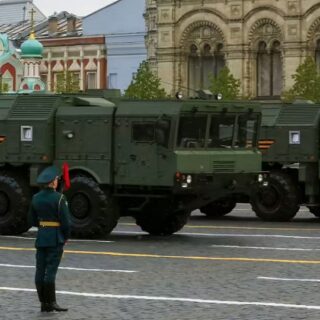
Political trials in the Russian Empire turned into battlegrounds between the government and educated society as represented by the political parties and movements.
Socialist defendants and their liberal defense lawyers joined combat with prosecutors determined to present the revolutionaries as monsters seeking to destroy Russia.
Defendants accused the government of committing crimes against the people and those standing up for the people’s interests. Terrorists on trial argued that government persecution of peaceful socialist propagandists turned them into terrorists. Lawyers often accused the government of persecuting idealistic young revolutionaries and thus turning them into terrorists.
Political trials often became barometers of public opinion due to widespread public sympathy for the defendants.
I wrote my master’s thesis in Russian history on the court reform of 1864 and about political trials from 1866-1894. The court reform was probably the most promising of all the great reforms of Tsar Alexander II. The reform established an independent judiciary, the profession of defense lawyers, and publicity in trials.
Defendants always had the last word in trials and full accounts of the proceedings were published in the official newspaper The Government Messenger [Правительственный вестник]. My research included learning about the Russian government’s laws on political or state crimes and tracking changes to the laws in the Criminal Code. How the government defined political crimes determined how it would treat real or imagined opponents.
The courage and defiance of the young revolutionaries on trial deeply impressed me. In fact, it is impossible not to be impressed by the courage of the defendants and defense lawyers. However, when I was researching and writing the thesis, I came to some interesting conclusions.
Historians have traditionally accused the government of sabotaging its own reform by restricting trial publicity, turning many cases over to military courts [courts martial], and punishing suspects by administrative order if a case stood little chance of conviction in a trial.
During my research, I realized that the socialist defendants and their liberal defense lawyers also sabotaged the court reform by turning political trials into tribunals for spreading socialist and liberal propaganda through the legal media. It became apparent that prosecutors, defendants, and defense lawyers were more interested in promoting their political agendas than ensuring that justice was done in trials.
Sabotage of the court reform was one more factor contributing to the low level of legal consciousness among many members of the government and society. What started as a sincere attempt by the government to submit its grievances against political offenders to the judgment of an independent third party turned into political theatre.
Political trials were one way of how the Russian government dealt with political crimes or crimes against the state. Other ways included the formulation of laws about political crimes, administrative punishments without use of trials, revision of the criminal code to cover new types of political crimes, and use of extraordinary laws to deal with revolutionary violence and other types of violence.
Russia’s golden age of large public political trials took place during the 1870s. Many trials took place during the 1880s and early 1890s, but they were generally closed to the public. There were many political trials in the Revolution of 1905-1907 and the following years. But the State Duma became the main venue for socialists and liberals to condemn the government. Speeches of Duma deputies often included justifications for terrorism as a form of political struggle and condemnation of the government’s repressive policies.
The Russian government’s policies on political crimes, especially terrorism, are extremely relevant for today. Countries have different laws on terrorism and there is no common international definition of terrorism. The United Nations has recognized the implications of this absence of a common definition. << The implications of the absence of a universal definition of terrorism for legal purposes are wide-ranging. One is that the lack of a definition may faciliate the politicization and misuse of the term “terrorism” to curb non-terrorist (or sometimes even non-criminal) activities. In turn, this can result in States, e.g., violating the rights of their own or other States’ citizens, such as those of international human rights law, in the course of their counter-terrorism efforts. [1]
International human rights organizations have expressed similar concerns about governments suppressing human rights and persecuting minorities in the name of national security. [2]
To understand political trials in Russia, we first have to look at the government’s views on political crimes as defined in the criminal codes.
Political Crime in the Russian Empire
Laws on political or state crimes evolve in the history of nations. American historian Jonathan Daly suggested that the views of many Europeans on political crime underwent a huge evolution. <<This striking transformation, which took place largely between the mid-eighteenth and the mid-nineteenth centuries, stemmed from the gradual agreement among most educated people in Europe and its diaspora that political, social, and religious ideas and institutions do not possess absolute value, and that therefore opposing this or that idea or institution should not be construed as gravely threatening to society or the body politic. >> [3, p. 63]
This does not mean that government repression of political crimes ended. From the late 19th century onward right up to the outbreak of World War I in 1914, European governments developed political police forces, intensified internal security, used extraordinary laws, and engaged in joint actions in suppressing anarchism. An obsession with conspiracy theories about an anarchist terrorist Black International dominated many European governments and societies during the <<Era of Dynamite>> from approximately 1870-1914.
Out of fairness, one can say that the Russian government was not alone in its fears about challenges to its authority and the measures it took to suppress its real or imagined opponents.
The Russian criminal code [Уложение о наказаниях уголовных и исправительных] was first enacted in 1845, went through several revisions, and a new version was published in 1903, on the eve of the Revolution of 1905-1907.
The 1845 code reflected elements of continuity and change in the government’s understanding of political crimes in the mid-19th century. The government recognized the possibility of a repetition of the mass uprisings of the 17th and 18th centuries, particularly the uprisings led by Stenka Razin in 1670-1671 and Emelian Pugachev in 1773-1775. Participants in these uprisings included peasants, Cossacks, urban masses, lower clergy, Old Believers, ethnic minorities. The spontaneous nature of the rebellions and the lack of unity in goals and tactics were the main reasons for their suppression by the government.
The code also reflected one major change in political activity in Russia. The 18th century was the century of palace coups d’etat [seizures of power]. Participants in these coups only tried to replace one ruler with another and did aim at the overthrow of the autocracy. The 1845 code was in its own way a consequence of the Decembrist uprising of many officers in 1825 and the Polish rebellion of 1830-1831. These uprisings were carried out by members of political conspiracies and aimed at overthrowing the autocracy. These were movements of the newly born educated society.
The 1845 code started a permanent search by the Russian government right up to its overthrow in 1917 for the perfect criminal code that would cover all antigovernment activities. European models could not help much because the antigovernment activities of the political parties and movements did not have equivalents in European countries. This is one more example of the special path that Russian government and society followed in contrast to Europe. [4]
Another contrast was in how many Europeans regarded political crimes in the late 19th -early 20th centuries. As Daly noted << Wherever popular sovereignty was conceived as the foundation of the political system, any attack on the institutions of the state or on the government elected by the majority could be conceived as an affront to the people itself >> and political crime could be regarded as “any violent harm caused to laws established by the majority to preserve the political, economic, or social system that it desires.” [1, p. 68]
The view in Russia was more in favor of the government’s right to defend itself. As far as the government was concerned, political crimes violated the authorities’ right to govern the country. [4]
The 1845 criminal code combined the Muscovite law code of 1649, the penal provisions of Peter the Great’s military statute [Артикуль военный] of 1716, and the reformed criminal codes of Western Europe. Chapters 3 and 4 covered crimes against the state [государственные преступления] and crimes against the order of government [преступления против образа правления].
State crimes were crimes committed against the monarch and government. These crimes were punished by the death penalty and were the only crimes in the code punishable by death. However, the military criminal code allowed the death penalty for a wider range of crimes and, as time passed, the government preferred to use courts martial (military courts) in cases involving terrorism and other types of violence, for example, armed resistance on arrest.
State crimes included assassination of the tsar, attempts on the lives of the Imperial family, insult of majesty—attacks on the honor of the emperor and his family–, conspiracies aimed at assassinating the tsar or overthrowing the government in the entire empire or in separate regions. Note that the emphasis on conspiracies aimed at overthrowing the government in separate regions applied to Poles and other separatists. Other state crimes included aiding antigovernment conspiracies, failure to make a denunciation to the authorities about any state crime, treason during war time. Subsequent amendments to the code spelled out penalties for violent or non-violent conspiracies aimed at overthrowing the government in a more or less remote time in the future. [4]
Crimes against the form of government did not carry the death penalty because they did not aim at overthrowing the government. They included a wide range of crimes, including rebellions, desertion from the military, and refusal to obey government orders. [4]
Daly suggested that Russia’s laws against sedition [antigovernment activity] were in general harsher, more abundant, and more vaguely formulated than those of the major Western European powers. [3, p. 73] The vague formulation of the laws made it possible for officials to apply them loosely.
The 1903 criminal code expanded the list of antigovernment activities. The new code criminalized the preparation, distribution, or public reading of written material inciting to treason, draft evasion, or any such insubordination, as well as the sowing of discord between factory owners and workers or between social classes. Manifestations of collective violence as pogroms, major strikes, and violent demonstrations were also defined as criminal. Severe punishments were specified for group participation in incidents of collective violence whenever single perpetrators were not discovered. Membership in a variety of unregistered political parties was made a criminal offense. [3, p. 72] The detailed provisions of the criminal code were largely directly against socialist parties. However, charges on belonging to unregistered political parties could be expanded to cover many conservative, liberal, and ethnic minority parties because the only legal political parties during the Revolution of 1905-1907 were the far-right Union of the Russian People and the conservative-liberal Union of October 17.
However, the death penalty was abolished for certain state crimes. Capital punishment was abolished for attacks against members of the imperial family other than the emperor, the empress, and the heir, or against the guardsmen protecting them, as well as for nonessential participation in, or failure to denounce, plots against the state or the emperor. [3, p. 72]
Government officials classified many types of antigovernment activities during the Revolution of 1905-1907 as state crimes. Examples in 1906 included preparing or possessing explosive devices with the intention of harming the state security or public order, distributing false information about the activities of government officials and institutions, and instigating peasant strikes. However, the government used Article 87 of the Basic Laws—its power to pass laws when the State Duma was not in session—to arrest anybody who in speech or print praised any illegal actions, especially terrorism attempts. [3, pp. 72-73]
It appears that the government was continually trying to amend its criminal code to cover new types of antigovernment activity, particularly during the revolution. Government officials studied European legislation to track the newest trends in revolutionary or oppositional activity and to draw up preventative measures in the criminal code to ensure that these types of antigovernmental activities would be crushed in their early stages in Russia.
It is easy to condemn the government for criminalizing virtually all types of political activity. However, the autocracy faced challenges to its authority that had no equivalents in European countries during this period. Furthermore, the history of European revolutions showed that governments were quick to crush opposition by enacting laws against political activities, using the armed forces to crush mass disorders, and applying the death penalty. Any talk about <<Russian barbarism>> is out of the question.
The next articles will examine how the government used political trials, administrative measures, and extraordinary laws to deal with its opponents.
Citations
- United Nations Office on Drugs and Crime [UNODC]. E4J University Module Series: Counter-Terrorism. Module 4: Criminal Justice Responses to Terrorism. Defining terrorism. https://www.unodc.org/e4j/en/terrorism/module-4/key-issues/defining-terrorism.html Доступно на русском языке: https://www.unodc.org/documents/e4j/CounterTerrorism/E4J_CT_module_4_-_final_RU.pdf
- Human Rights Watch: Topics: Terrorism/Counterterrorism https://www.hrw.org/topic/terrorism-counterterrorism
- Daly, Jonathan. Political Crime in Late Imperial Russia. The Journal of Modern History, Vol. 74, No. 1 (March 2002), pp. 62-100.
- Рокки, Тони. Политический терроризм в Российской империи: уроки для современного мира. Часть IX. (Political terrorism in the Russian Empire: lessons for today’s world) 4 октября 2017 https://iarex.ru/articles/54584.html





